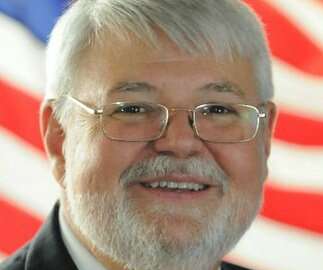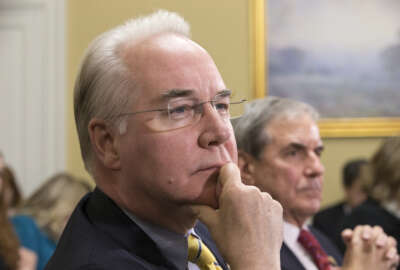
NTEU rallies for grassroots movement to boost federal pay, change political dynamics
The National Treasury Employees Union says the upcoming 2016 election could be the most important one for federal employees yet. NTEU National President Tony...
In a tumultuous election year, the National Treasury Employees Union is encouraging its members to go out and vote — for candidates who will protect their federal pay, benefits and collective bargaining rights.
“Everything about your working lives is decided by those who are elected to national office: your pay, your retirement benefits, your agency’s funding, who runs your agency, whether or not your job will be contracted out and whether or not you will maintain collective bargaining rights,” NTEU National President Tony Reardon said during the union’s 2016 legislative conference in Washington Feb. 23. “Here is a very scary and sobering fact: Right now, all of those things are in jeopardy.”
Those votes are more important than ever, considering a recent series of bills targeting union representation practices, official time and other appeals rights, he said.
“I’m not certain that everyone gets it,” Reardon said. “I’m not certain that everyone gets what we are facing. These elections in 2016 are so critically important to federal employees. I cannot over-emphasize that.”
Other moves to cut agency resources aren’t helping either. Thanks to budget cuts, the IRS has lost at least 18,000 full and part-time employees since 2010. Some employees at Customs and Border Protection are working multiple, 16-hour shifts in one week, Reardon said. NTEU represents employees at both of those agencies.
House Minority Whip Steny Hoyer (D-Md.) echoed Reardon’s concerns about the upcoming election.
“The election year in 2016 is likely to see more attacks against federal workers and against government generally,” Hoyer said at NTEU’s conference. “Too many people who are against government — the way it operates or the things it does — transfer that animosity to the people we ask to serve the American people. That’s wrong. We ought to confront it. We must not let those attacks go unanswered. We must not let the opponents of civil servants’ much-deserved pay, benefits and job security drive that narrative.”
Hoyer is one of a few members of Congress who is arguing that the 1.6 percent pay raise President Barack Obama proposed for civilian and military employees in fiscal 2017 isn’t enough. Hoyer said he’s working with Rep. Gerry Connolly (D-Va.) to develop an alternative.
“Does more pay help each and every one of you and your members? It does,” Hoyer said. “But it also helps the country. It makes us better, more able to confront the challenges that frankly, when I graduated high school, this country didn’t have.”
Connolly’s bill, which proposes a 5.3 percent raise for federal employees, was introduced earlier this week.
NTEU, along with the American Federation of Government Employees, is backing Connolly’s proposal. Reardon acknowledged that previous attempts from Congress to raise federal pay didn’t go far. But Connolly’s bill makes the most sense to support, he said.
“Do I know that it’s going to pass, of course I don’t,” Reardon told reporters. “I will tell you that we’re going to bust our tails to see that it does.”
The raise is long overdue, Reardon and Hoyer said, because federal employees have contributed at least $182 billion toward budget-saving measures over the past several years.
“Young people, when they see us fighting and scratching and screaming at one another at the federal level, and then they see us shutting down the government and they see pay freezes and pensions undermined and federal employee health benefits not as generous as they could be … what do you think young people think? They think ‘I don’t want to work for that employer,'” Hoyer said. “That employer doesn’t treat their employees well.”
Reardon said better federal pay is essential if agencies want to attract a younger generation to government, and NTEU’s future depends on recruiting new, young employees.
Boosting union membership, as well as the upcoming election, are Reardon’s top focus areas in 2016.
“When younger folks do come into the workplace, I don’t necessarily conclude that they don’t value the union,” he said. “I don’t conclude that they don’t join the union. It creates all kinds of opportunities for NTEU. It creates opportunities for us to engage them. It creates opportunities for us to listen to them, to possibly change the way we do business.”
Some of NTEU’s participating agencies, particularly CBP, are hiring more young people, said Maureen Gilman, the union’s legislative director. NTEU’s other agencies, such as the Securities and Exchange Commission and Consumer Financial Protection Bureau, hire many new graduates who are joining the union.
“It’s no longer a given that young people no longer believe in the labor movement or want to have union representation,” she said.
Reardon encouraged current NTEU members of all ages to organize and rally behind better pay and benefits — and better treatment from Congress.
“We need all NTEU members to push back, to push back against the threats to your pay and to your benefits,” he said. “We need all NTEU members to build on our support on Capitol Hill. And we must expand our grassroots efforts across the country and stand up against those who work against us. …Together, we must grow this movement. … We can change the dynamic. We must change the dynamic. How? Because we are a union. And we are a collective voice for action.”
Copyright © 2025 Federal News Network. All rights reserved. This website is not intended for users located within the European Economic Area.
Nicole Ogrysko is a reporter for Federal News Network focusing on the federal workforce and federal pay and benefits.
Follow @nogryskoWFED






